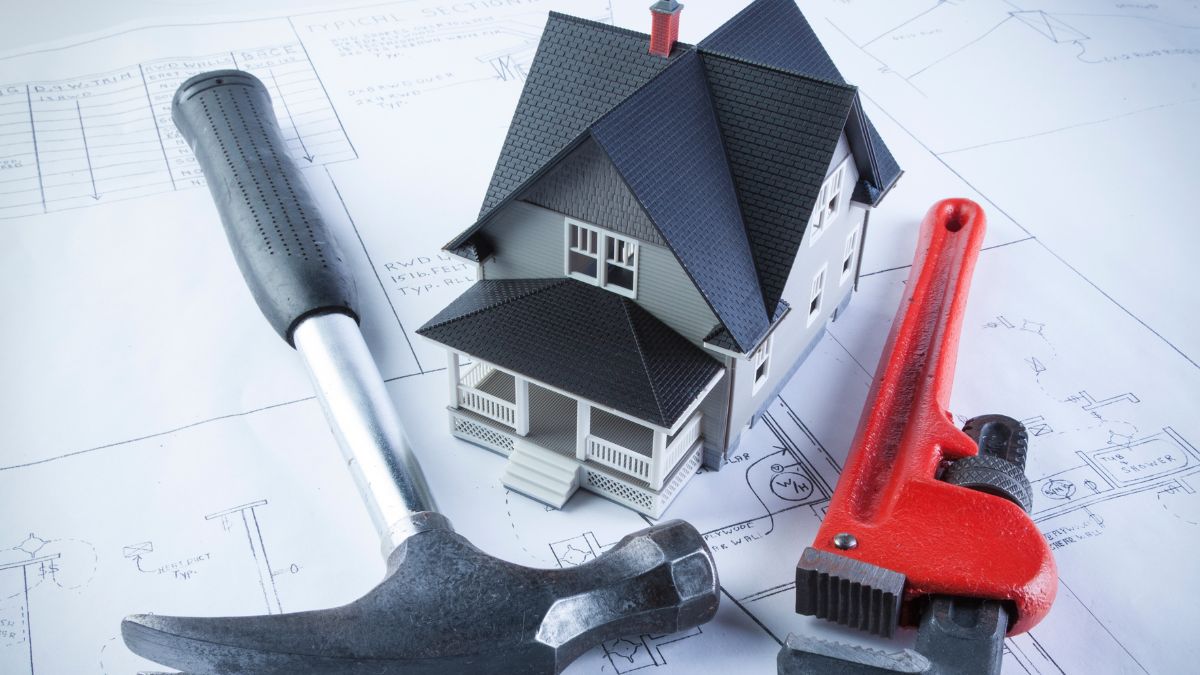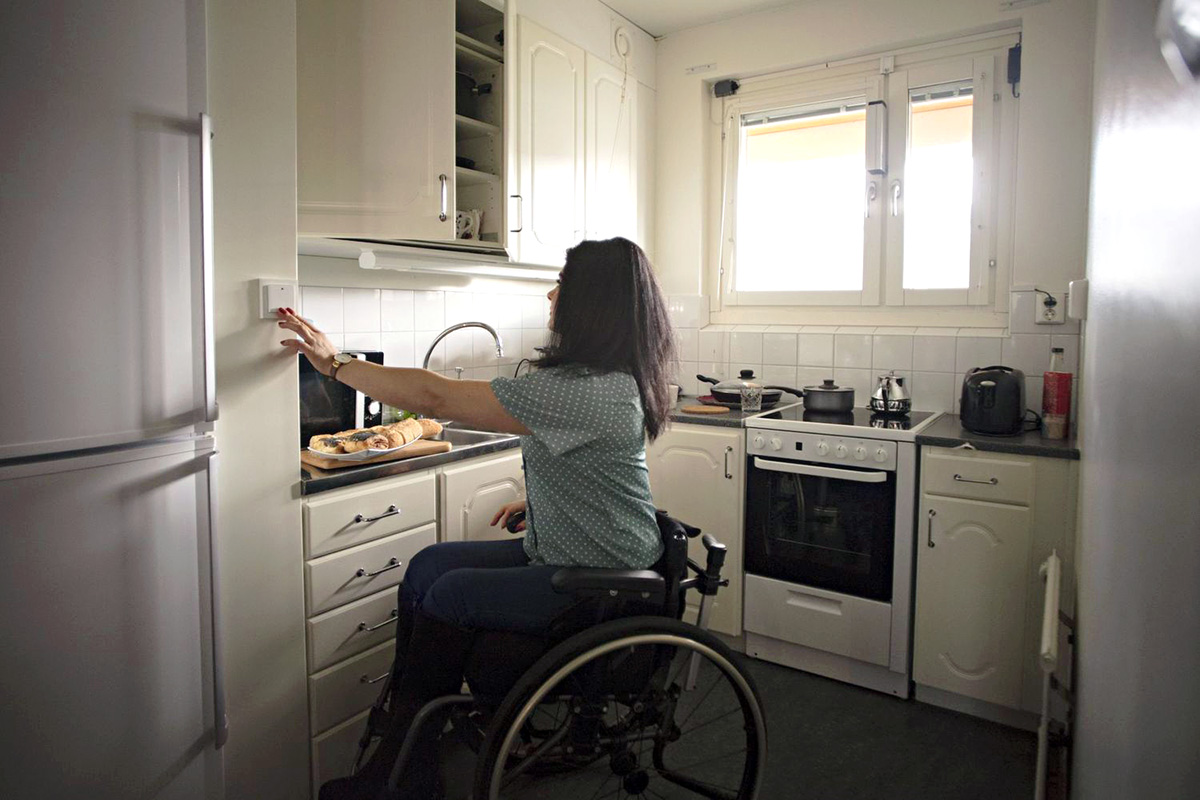Home>Renovation & DIY>Home Renovation Guides>Do I Deduct Home Improvements When I Sell My House?


Home Renovation Guides
Do I Deduct Home Improvements When I Sell My House?
Modified: January 19, 2024
Learn whether you can deduct home improvements when selling your house with our comprehensive home renovation guide. Maximize your profits with expert advice.
(Many of the links in this article redirect to a specific reviewed product. Your purchase of these products through affiliate links helps to generate commission for Storables.com, at no extra cost. Learn more)
Introduction
Welcome to the exciting world of home improvements! Whether you’re adding a new deck, renovating your kitchen, or sprucing up your bathroom, making upgrades to your home can enhance its functionality, comfort, and overall value. However, as you embark on these endeavors, it’s essential to consider the potential tax implications, especially if you plan to sell your house in the future.
When it comes to home improvements and taxes, numerous questions may arise. Do I deduct home improvements when I sell my house? Are all home improvements eligible for tax deductions? What’s the difference between capital improvements and repairs, and how do they affect my tax obligations? In this comprehensive guide, we will delve into these queries and shed light on the intricate relationship between home improvements and tax considerations.
Understanding the tax implications of home improvements is crucial for homeowners looking to maximize their financial benefits while ensuring compliance with relevant regulations. By gaining insights into the tax treatment of various home upgrades, you can make informed decisions and strategically plan for the future sale of your property. So, let’s embark on this enlightening journey to unravel the mysteries of deducting home improvements when selling your house!
Key Takeaways:
- When selling your house, home improvements can impact your taxes. Keep detailed records of costs, as they can reduce your taxable income and potentially minimize your tax liability.
- Distinguishing between capital improvements and repairs is crucial. By understanding the tax implications, you can strategically position yourself for a favorable tax treatment when selling your home.
Read more: Home Improvements When Selling A House
Understanding Home Improvements
Home improvements encompass a wide array of enhancements made to a property to increase its value, functionality, or aesthetic appeal. These upgrades can range from minor repairs and cosmetic changes to major renovations and structural modifications. Common examples of home improvements include kitchen remodels, bathroom renovations, roof replacements, landscaping projects, and the installation of energy-efficient systems.
While home improvements offer homeowners the opportunity to customize their living spaces and potentially boost their property’s market value, it’s important to distinguish between general maintenance and true improvements. The latter typically involve substantial investments and result in a significant increase in the home’s value, durability, or utility. Understanding the nature of home improvements is essential for evaluating their tax implications, particularly when it comes to selling your house.
Before diving into the tax aspects, it’s crucial to assess the impact of home improvements on your overall homeownership experience. Beyond financial considerations, these upgrades can enhance your comfort, convenience, and satisfaction with your living environment. Whether you’re adding modern amenities, enhancing energy efficiency, or creating additional living space, home improvements can elevate your quality of life and create a sense of pride in your home.
Furthermore, home improvements can align with your long-term lifestyle goals, allowing you to tailor your living space to better suit your needs and preferences. Whether you’re accommodating a growing family, creating a home office, or establishing an outdoor entertainment area, these enhancements can significantly enrich your daily life and contribute to a more fulfilling homeownership experience.
As you embark on your home improvement journey, it’s essential to approach these projects with a clear understanding of their potential impact on your property’s value, your tax obligations, and, most importantly, your overall satisfaction with your living space. By recognizing the multifaceted nature of home improvements, you can make well-informed decisions that align with your personal and financial objectives.
Tax Implications of Home Improvements
When considering the tax implications of home improvements, it’s important to differentiate between immediate tax benefits and long-term implications, particularly upon the sale of your home. While the costs of home improvements are generally not deductible in the year they are incurred, they can have a significant impact on your tax obligations when you eventually sell your property.
One key consideration is the concept of “basis” in relation to your home. The basis is essentially the amount of money you have invested in your home for tax purposes. It includes the purchase price of the property, as well as any qualifying home improvement costs. When you sell your home, the basis is used to determine the capital gain or loss on the sale, which in turn affects your tax liability.
By increasing your home’s basis through eligible improvements, you can potentially reduce the capital gain realized upon the sale of your property. This, in turn, may lower your taxable income from the sale and result in a reduced tax burden. It’s important to maintain detailed records of the costs associated with home improvements, as these expenses can be added to your basis and potentially yield tax benefits in the future.
Furthermore, certain energy-efficient home improvements may qualify for tax credits, providing immediate financial incentives for environmentally conscious upgrades. For instance, installing solar panels, energy-efficient windows, or a high-efficiency heating and cooling system could make you eligible for valuable tax credits, thereby offsetting a portion of your upfront investment.
It’s important to note that tax laws and regulations regarding home improvements and their implications can be complex and subject to change. Consulting with a tax professional or financial advisor can provide invaluable guidance tailored to your specific circumstances, ensuring that you make informed decisions and maximize the tax benefits associated with your home improvements.
Understanding the tax implications of home improvements is essential for homeowners seeking to optimize the financial outcomes of their property investments. By navigating the intricate intersection of home upgrades and tax considerations, you can strategically position yourself for a favorable tax treatment when it comes time to sell your home.
You cannot deduct home improvements when you sell your house, but you can add the cost of improvements to the purchase price, reducing the capital gains tax.
Capital Improvements vs. Repairs
When it comes to home maintenance and enhancements, it’s crucial to distinguish between capital improvements and repairs, as they have distinct implications for your tax obligations and the overall value of your property.
Capital improvements, also known as capital expenditures, involve significant enhancements that increase the value, extend the useful life, or adapt the property for a new use. These improvements typically result in enduring benefits and represent investments in the long-term value of the home. Examples of capital improvements include room additions, major renovations, the installation of a new roof, and the addition of a swimming pool or a built-in garage.
On the other hand, repairs are considered routine maintenance activities that are necessary to keep the property in good condition and maintain its value. Repairs are typically aimed at restoring the property to its original state and do not materially add to its value or prolong its life. Common examples of repairs include fixing a leaky roof, repairing a broken window, or addressing plumbing issues.
From a tax standpoint, capital improvements are generally added to the basis of the property and can potentially reduce the capital gain upon the sale of the home. This can result in tax benefits when it comes time to sell the property. In contrast, repair costs are typically expensed in the year they occur and do not impact the property’s basis or the tax treatment upon its sale.
It’s important to carefully document all home improvement expenses and assess whether they qualify as capital improvements or repairs based on the nature and scope of the work. Keeping detailed records of these expenditures is essential for accurately determining the basis of your property and maximizing potential tax benefits in the future.
Understanding the distinction between capital improvements and repairs is crucial for homeowners navigating the complexities of home maintenance and tax considerations. By discerning the tax implications of various property enhancements, you can make informed decisions that align with your financial objectives and position you for favorable tax treatment when selling your home.
Deducting Home Improvements When Selling Your House
As you prepare to sell your house, it’s important to understand the potential tax implications of the home improvements you’ve made over the years. While the costs of home improvements are not typically deductible in the year they are completed, they can have a significant impact on your tax obligations when it comes time to sell your property.
When determining the tax implications of home improvements upon the sale of your house, the concept of basis plays a crucial role. The basis of your home includes the original purchase price as well as the cost of any capital improvements made to the property. By adding the expenses of eligible home improvements to your basis, you can potentially reduce the capital gain realized from the sale of your home, thereby lowering your taxable income and potentially minimizing your tax liability.
It’s important to maintain meticulous records of the costs associated with home improvements, as these expenses can directly impact the basis of your property. Whether you’ve renovated your kitchen, added an extension, or invested in energy-efficient upgrades, the documentation of these expenditures can prove invaluable when calculating your property’s basis and assessing potential tax benefits upon its sale.
Furthermore, certain home improvements, particularly those focused on energy efficiency, may qualify for valuable tax credits. For instance, installing solar panels, energy-efficient windows, or a high-efficiency heating and cooling system can make you eligible for tax credits, providing immediate financial incentives and potentially offsetting a portion of your initial investment.
As you navigate the process of selling your house, consulting with a tax professional or financial advisor can provide tailored guidance on maximizing the tax benefits associated with your home improvements. These experts can help you assess the impact of your home upgrades on the basis of your property and strategically position you for a favorable tax treatment upon its sale.
By understanding the tax implications of home improvements when selling your house, you can make informed decisions that optimize the financial outcomes of your property investments. Whether it’s enhancing the market value of your home or leveraging tax benefits, the strategic management of home improvements can significantly impact your financial well-being as you transition to a new chapter in homeownership.
Read more: What Home Improvements Help Sell A House?
Conclusion
Embarking on home improvements is an exciting journey that allows homeowners to enhance their living spaces, increase property value, and customize their dwellings to better suit their needs and preferences. However, amidst the myriad of considerations that come with home upgrades, it’s essential to be mindful of the potential tax implications, especially when selling your house.
Understanding the tax treatment of home improvements is crucial for homeowners seeking to maximize their financial benefits while ensuring compliance with relevant regulations. By recognizing the impact of these upgrades on the basis of your property and potential tax deductions, you can make informed decisions that align with your long-term financial goals.
As you navigate the complexities of home improvements and tax considerations, it’s important to distinguish between capital improvements and repairs, as well as to maintain detailed records of the costs associated with these upgrades. By discerning the tax implications of various property enhancements, you can strategically position yourself for a favorable tax treatment when it comes time to sell your home.
Consulting with tax professionals or financial advisors can provide invaluable guidance tailored to your specific circumstances, ensuring that you leverage the tax benefits associated with your home improvements. Whether it’s adding to the basis of your property, qualifying for energy-efficient tax credits, or optimizing your tax obligations upon the sale of your house, expert advice can help you make the most of your home improvement investments.
Ultimately, the intersection of home improvements and taxes offers homeowners the opportunity to not only enhance their living spaces but also strategically manage their financial well-being. By embracing a comprehensive understanding of the tax implications of home improvements, you can navigate the sale of your house with confidence, knowing that your strategic decisions along the way have positioned you for favorable financial outcomes.
So, as you embark on your home improvement endeavors, remember that informed decisions today can yield substantial benefits tomorrow, ensuring that your property investments align with your financial aspirations and contribute to a rewarding homeownership experience.
Frequently Asked Questions about Do I Deduct Home Improvements When I Sell My House?
Was this page helpful?
At Storables.com, we guarantee accurate and reliable information. Our content, validated by Expert Board Contributors, is crafted following stringent Editorial Policies. We're committed to providing you with well-researched, expert-backed insights for all your informational needs.















0 thoughts on “Do I Deduct Home Improvements When I Sell My House?”